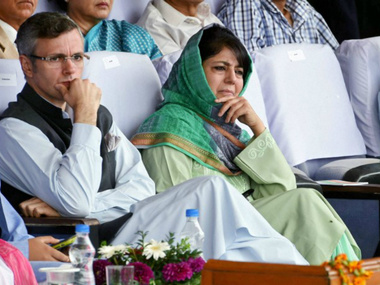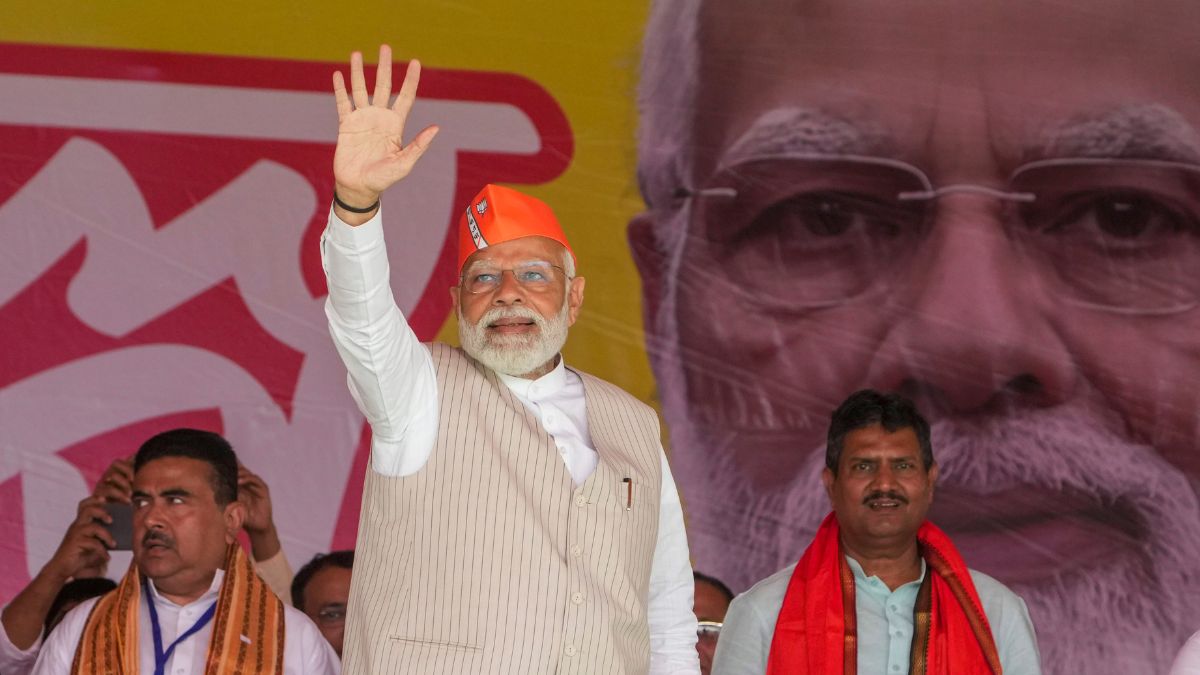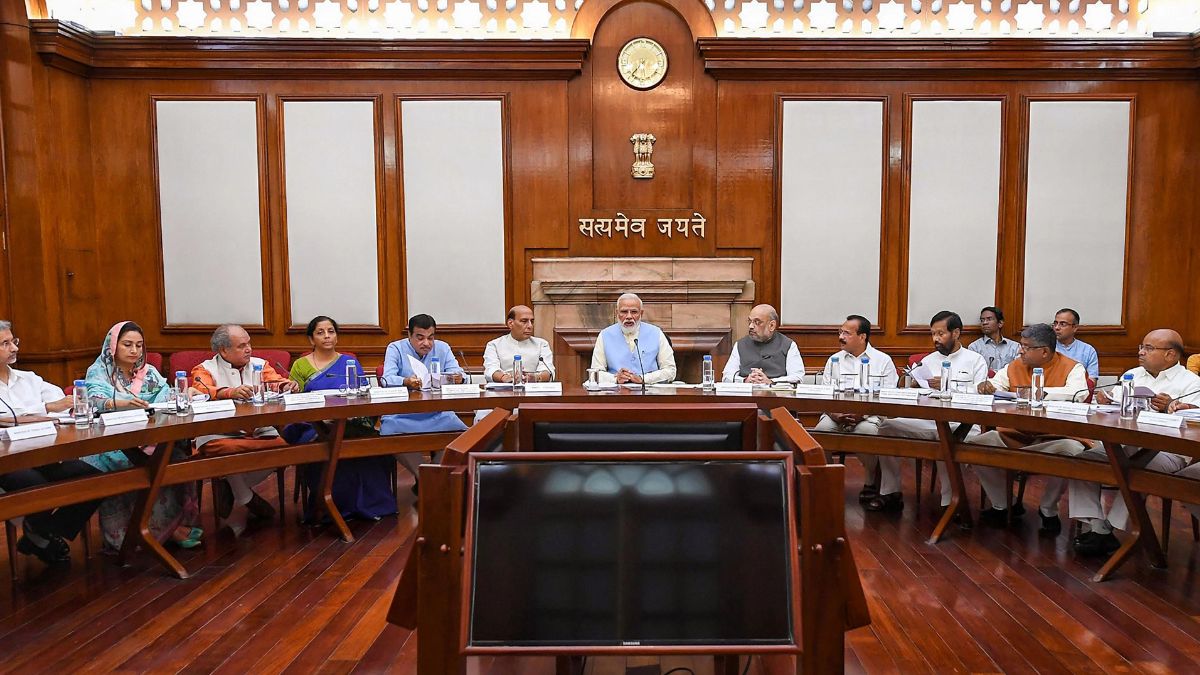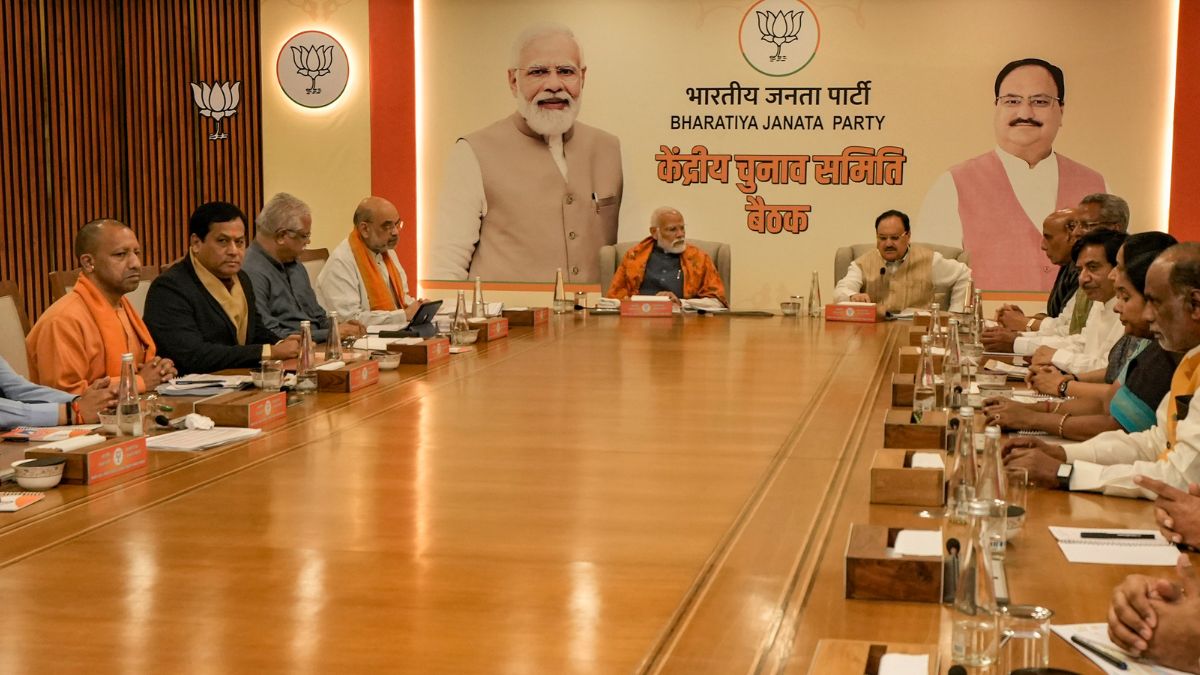Among the reasons given for detaining former Jammu and Kashmir chief ministers Omar Abdullah and Mehbooba Mufti under the stringent Public Safety Act (PSA) are Abdullah’s “considerable influence” over “gullible” masses, including the ability to attract voters to polling booths despite calls for boycott and Mufti’s image among people as a “daddy’s girl”.
While Mufti, the Peoples Democratic Party (PDP) chief, has also been accused of making anti-national statements and extending support to banned organisations such as the Jamaat-e-Islami, the dossier issued by the Srinagar district magistrate also said that Mufti is recognised as a “hard headed and scheming person whose actions have ranged from speeches glorifying militants to creating fears among majority populations based on cheap politics”.
Of Abdullah, whose father Farooq Abdullah was also booked under the PSA on 16 September 2019, the dossier said, “An overview of the activities of the subject (Omar Adullah) suggest that the ideology of the subject is favouring radical thoughts, which he has also turned into actions…Despite of the fact that subject has been a mainstream politician, he has been planning and projecting his activities against the Union of India under the guise of politics and while enjoying the support of gullible masses he has been successful in execution of such activities.”
The grounds of detention against Omar, who was chief minister of the erstwhile state from 2009-14, said that on the eve of the reorganisation of the region, he had made attempts to provoke general masses against the revocation of Articles 370 and 35A.
The grounds also mention his comments on social networking sites to instigate common people against the decisions on Articles 370 and 35A which had the potential of disturbing public order. However, the police have neither mentioned any of Omar’s social media posts in the dossier nor in the order for grounds of his detention.
“To the people of Kashmir, we don’t know what is in store for us…….stay safe and above all please stay calm,” were the last few tweets of Omar before he was taken to Hari Nivas for preventive detention.
The dossier also said that Abdullah’s “capacity of influencing people for any cause” is evident through his ability to “convince his electorate to come out and vote in huge numbers even during peak militancy and poll boycotts”. It added, “The activities of subject are aiming to raise a voice against union of India by way of encouraging mass agitation, thus it could be safely said that subject by way of influence in Beerwah/Sonwar constituency can get large numbers to protest against decision taken by Government of India.”
“The main aim and objective of subject (Abdullah) is to create an atmosphere of fear and chaos, so as to create mass agitation against the Union of India,” the document said.
Under the section of ‘Grounds for detention’, the dossier said that Abdullah’s calls for protests against the abrogation of Article 370, a law which accorded a certain degree of autonomy to the then-state, and Article 35A. The document also stated that Abdullah had “fanned the emotions of general masses” against the Centre through social media posts allegedly against the “unity and integrity” of the country.
“The district police and concerned agencies have also highlighted some incidences in the recent past i.e. July-2019 while addressing the party workers the subject stated that if Article 370 and 35A are abrogated, they will unite and raise protests as already been decided by National Conference, and also informed party workers about a series of programmes against the State. It was also learnt through credible sources that he impressed upon party workers who attended meeting that the youth of the Sonawar Constituency be informed regarding the meeting and ask them to be ready for mass agitation if Article 370 is revoked,” the dossier said.
The list detailing Mufti’s social media posts as an indicator of her “instigating bent of mind” runs into several pages.
The dossier said that Mufti’s posts “glorified and justified actions of anti-national elements” and also accused her of “demoralising security forces”.
“The subject has been stoking gullible masses so as to create issues of disturbance in public order and demoralising security forces by making unscrupulous statements vis-a-vis the security exercises being undertaken for safety and security of common people,” the dossier said.
Referring to Mufti’s post about the closure of the Jammu-Srinagar highway in April 2019, the document said, “The subject (Mufti) is referred for her dangerous and insidious machinations and usurping profile and nature by the masses as " Daddy’s girl” and “Kota Rani”, based on profile a historical medieval queen of Kashmir, who rose to power by virtue of undertaking intrigues ranging from poisoning of her opponents to ponyardings….Her divisive approach and potential and its spill over to other parts of the country is reflected by her pronouncements," the dossier added, referring to her statements about the Centre’s Triple Talaq Bill (now Act).
While the document also allowed for the criticism of government policies “in a democratic setup”, it accused Mufti of “whipping up of mass hysteria based on details far from the truth, intended to provoke disturbance to public order is a worth to be culled for protection of safety, security of common people and development of nation.”
Omar and Mufti had been under preventive detention since 5 August last year, when the Centre announced abrogation of Article 370 of the Constitution granting a special status and bifurcation of the erstwhile state into two union territories — Ladakh, and Jammu and Kashmir.
They were booked under the PSA on the night of 6 February, barely a few hours before their preventive detention was to end. According to rules, preventive detention can be extended beyond six months only if an advisory board, constituted two weeks before the completion of the 180-day period, recommends the measure.
Farooq Abdullah, who is a five-time chief minister and currently a member of Lok Sabha, was booked in September last year under the PSA, a law which was enacted by his father Sheikh Abdullah in 1978 to fight timber smugglers in the state as they would easily get away with minimal detention those days.
Sheikh Abdullah brought the Act as a deterrent against timber smugglers as it provided a jail term, without a trial, for up to two years. However, this Act came in handy for the police and security forces during the early 1990s when militancy erupted in the state.
After then-Union home minister Mufti Mohammed Sayeed enforced the controversial Armed Forces (Special Powers) Act in the state in 1990, authorities used the PSA to detain people. The Act was amended in 2012 and some of its stricter provisions were relaxed. After the amendment, period up to which a first-time offender or individual can be put in detention without trial was reduced from two years to three months.
With inputs from PTI


)




)
)
)
)
)
)
)
)